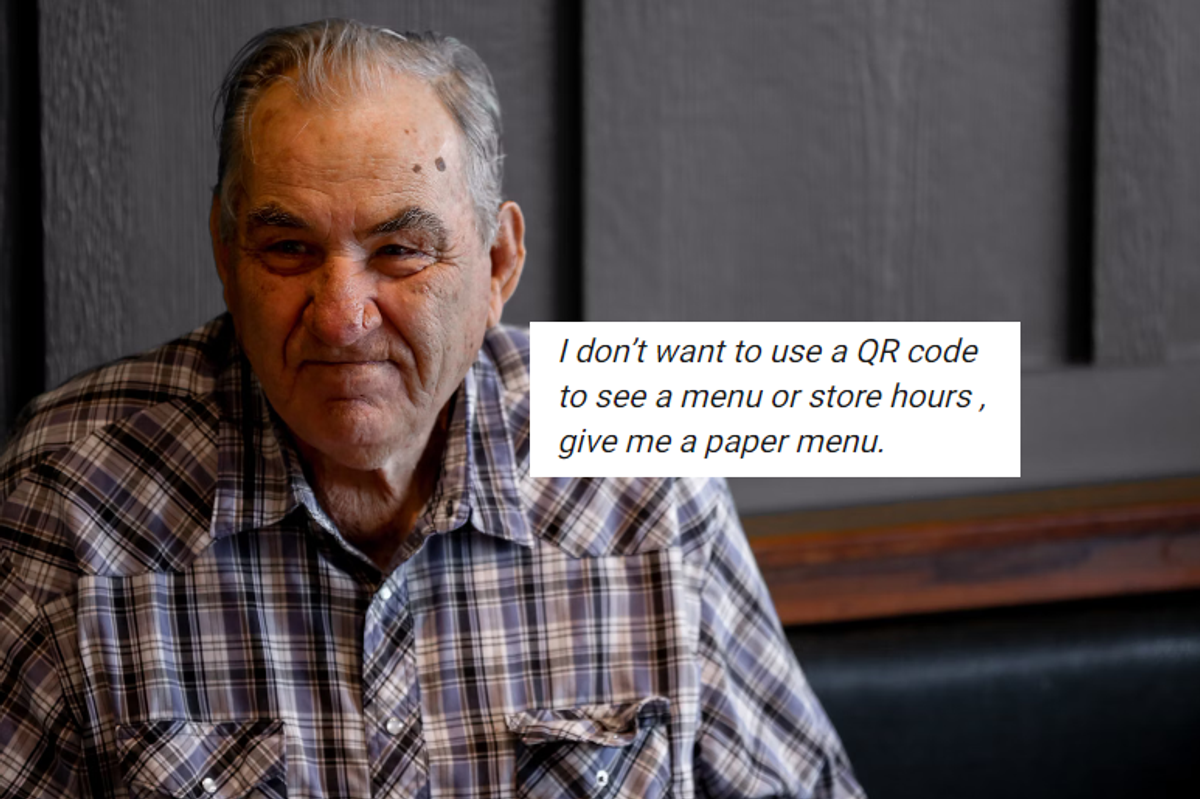Guy shares the 11 techniques that helped him completely overcome his social awkwardness
"I used to be the guy who'd avoid eye contact, give one-word answers, and somehow make every conversation die."

Man explains how he overcame being socially award.
If you feel socially awkward, you're not alone. Many Americans report feeling it. According to a 2022 YouGov poll, one in four Americans (26%) say they're much or somewhat more awkward than other people. Social awkwardness can negatively impact social, family, and work relationships.
On Reddit, member @Everyday-Improvement opened up about how he overcame social awkwardness. "I was socially awkward for 5 years," he shared. "Used to be the guy who'd avoid eye contact, give one-word answers, and somehow make every conversation die. Small talk felt like torture. Group settings made me want to hide in the bathroom."
To help him, he sought out the Dale Carnegie's book How to Win Friends and Influence People. He writes that he had previously read it "probably 5 times but never actually did anything with it. Just highlighted passages and felt smart for 10 minutes. Finally decided to treat it like a playbook instead of philosophy and holy sh*t, people actually started liking me."
- YouTube www.youtube.com
In his post, he decided to share the 11 techniques that he took away from the book that "changed everything" for him. He added, "People actually seek out my opinion now. Invitations to social stuff increased by like 300%. Family gatherings stopped feeling like interrogations. Also time with friends have been the best. Being genuinely interested in others is way less work than trying to be interesting yourself. When you focus on making other people feel good, they associate those positive feelings with you."
The biggest takeaway? Change is possible. "Most social skills advice tells you to 'just be yourself.' But if 'yourself' is socially awkward, that's terrible advice. Carnegie's book taught me that social skills are learnable skills, not personality traits you're born with," he noted. "Took me 5 years to figure out that people don't care how smart or funny or interesting you are. They care about how you make them feel. Once I started focusing on that, everything else fell into place."
These are 11 tips to help you become less socially awkward.
1. Names are literally magic words.
"Started using people's names way more than felt natural. 'Thanks for the coffee, Sarah' instead of just 'thanks.' 'Good point, Mike' instead of 'good point.' Felt weird at first but people light up when they hear their own name. Their whole face changes," he wrote.

2. Became genuinely curious about random stuff.
He successfully implemented this by asking follow-up questions when in conversation with others. If someone talked about hiking, he'd follow up with simple but engaged questions like, "''What's the hardest part about the trail?', 'Do you see wildlife?', or 'How do you know which gear to bring?' Turns out most topics are fascinating if you dig past surface level,'" he shared.
3. Stopped trying to be the smartest person in the room.
To do this, he explained that he stopped correcting people and one-upping people's stories. "[I] Started asking 'How did you figure that out?' or 'What made you think of that approach?' instead. People love explaining their thought process and you actually learn stuff," he wrote.
4. Let people save face when they mess up.
"Coworker made a mistake in a meeting? Instead of pointing it out, I'd say 'Maybe we should double-check the numbers' or 'I might be missing something here.' They fix the error without looking stupid. They remember who had their back," he noted.
5. Actually listened instead of waiting for my turn to talk.
He noticed that he was not actively listening to others, and was always preparing responses rather than paying attention to what others were saying. To change this, he started to ask follow-up questions when someone answered.
"Conversations became way less exhausting because I wasn't constantly having to think what to say next," he explained.

6. Found common ground with literally everyone.
The key for him was to find shared experiences and not focus on differences. "Turns out the a coworker and I both hate morning meetings. The quiet intern and I both love obscure podcasts. The annoying coworker and I both struggle with work-life balance. Connection beats competition every time," he shared.
7. Became a hype man for other people's wins.
He became a cheerleader for others, highlighting their successes. "'Did you hear Sarah closed that big deal?' 'Mike's presentation was incredible, did you see it?' Takes zero effort but people remember who celebrates their success."

8. Stopped arguing about stupid stuff.
Rather than adopt a combative attitude that resulted in debate, he chose to let things go. "Now when someone says something I disagree with, I either let it go or say 'I never thought about it that way' and actually consider their perspective. Relationships improved overnight," he added.
9. Started admitting when I was wrong.
Taking a humble approach when making mistakes paid off. "'You're right, I messed that up' became my new superpower," he explained. "People expect defensiveness, so honesty catches them off guard. They usually respond with understanding instead of judgment."

10. Asked for advice instead of giving it.
A big change: he stopped telling people what they should do. "I started asking 'What do you think would work best?' or 'What's your gut telling you?' People already know their answers most of the time, they just want someone to listen," he shared.
11. Made people feel important.
Finally, making sure others felt noticed became priority. "'I really liked how you handled that difficult client' or 'Your way of explaining complex stuff makes so much sense.' Genuine appreciation, not generic compliments," he wrote.
- In case you were curious, introverted dogs are just as awkward in groups as humans ›
- Socially awkward people share the 11 signs they were becoming more confident and outgoing ›
- The 4 words that can keep conversation flowing forever, even between socially awkward people ›
- People swear by the unusual 'Solid Snake' conversation trend to conquer social anxiety - Upworthy ›
- The foolproof way to get people to open up without asking them any questions - Upworthy ›
- 15 psychological 'cheat codes' people swear work every time for social situations - Upworthy ›
- Psychologist says socially awkward people have thrived through history because of this hidden trait - Upworthy ›






 A woman is getting angry at her coworker.via
A woman is getting angry at her coworker.via  A man with tape over his mouth.via
A man with tape over his mouth.via  A husband is angry with his wife. via
A husband is angry with his wife. via 
 Some Boomer grandparents are being called out for "gramnesia".
Some Boomer grandparents are being called out for "gramnesia".

 A woman gets a tattoo.
A woman gets a tattoo. Boy playing on the computer.
Boy playing on the computer.
 Grumpy boomers aren't wrong about everything. Photo by
Grumpy boomers aren't wrong about everything. Photo by  Even the young people can't stand QR codes. Photo by
Even the young people can't stand QR codes. Photo by  Everything, even fast food, has gotten out of control expensive. Photo by
Everything, even fast food, has gotten out of control expensive. Photo by